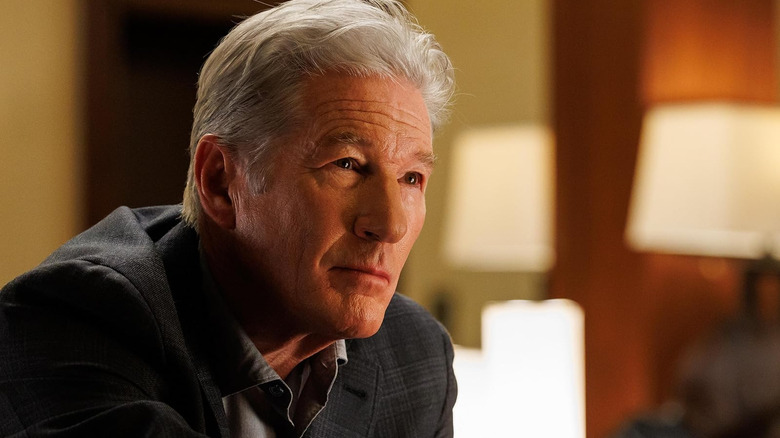
A 20-Years Shocking Exile:Richard Gere Banned for 20 Years from the Film Festival due to a……..
Richard Gere, the acclaimed actor known for his roles in films like “Pretty Woman” and “Chicago,” has been the subject of significant media attention over the years. Recently, however, he found himself at the center of controversy when he was banned from a prestigious international film festival for a staggering 20 years. This unexpected decision has sparked a wave of discussions regarding artistic freedom, political activism, and the complex relationship between celebrities and the film industry.
The ban originated from Gere’s outspoken support for various social and political causes, particularly his advocacy for Tibetan independence. A long-time supporter of the Tibetan cause, Gere has used his celebrity status to draw attention to human rights issues in the region. This advocacy, while noble in intent, has not been without consequences. The film festival in question, which is known for its connections to China, reportedly faced pressure from Chinese officials following Gere’s vocal criticisms.
Gere’s relationship with the Chinese government has been fraught since the 1990s when he first began speaking out about Tibet. Despite his efforts to promote awareness and support for the Tibetan people, his stance has led to significant backlash, including being banned from entering China. The film festival’s decision to impose a 20-year ban appears to be a move to distance itself from Gere’s controversial views and to maintain its ties with Chinese sponsors and audiences.
The implications of this ban extend beyond Gere himself. It raises questions about the extent to which artistic platforms should be influenced by political pressures. Many in the film community have expressed their dismay over the festival’s decision, arguing that art should be a space for free expression, even when that expression challenges powerful governments. Supporters of Gere see the ban as a chilling effect on activism within the arts, fearing it may deter other artists from voicing their beliefs for fear of professional repercussions.
Critics of the ban argue that festivals must consider their funding and international relationships. They assert that while artistic integrity is crucial, practical realities often dictate the decisions made by such institutions. This tension between artistic freedom and political pragmatism is a recurring theme in the film industry, reflecting broader societal debates about the role of art in activism.
In the wake of the ban, discussions about Gere’s legacy have resurfaced. While he is celebrated for his contributions to cinema, his activism has also defined him in many ways. His ban from the festival has become a symbol of the struggle many artists face when navigating the complexities of their convictions in an increasingly interconnected world.
As the film festival moves forward without Gere, the industry will be watching closely to see how this situation unfolds. Will it deter artists from taking a stand on important issues, or will it galvanize a new wave of activism within the cinematic community? The outcome remains uncertain, but Richard Gere’s case serves as a poignant reminder of the often fraught intersection of art, politics, and personal conviction in today’s world.